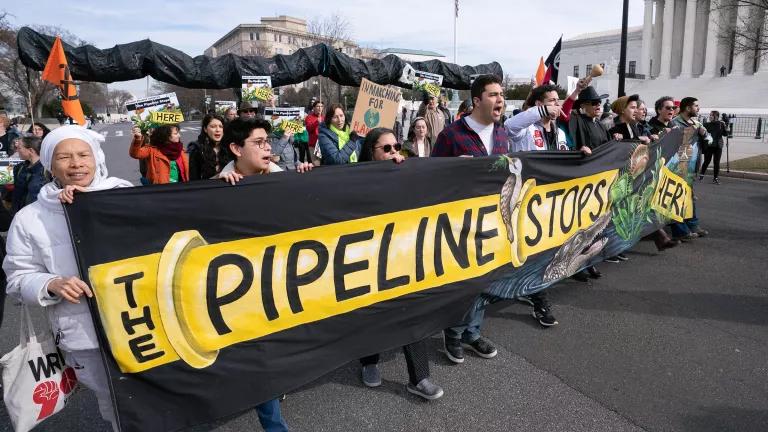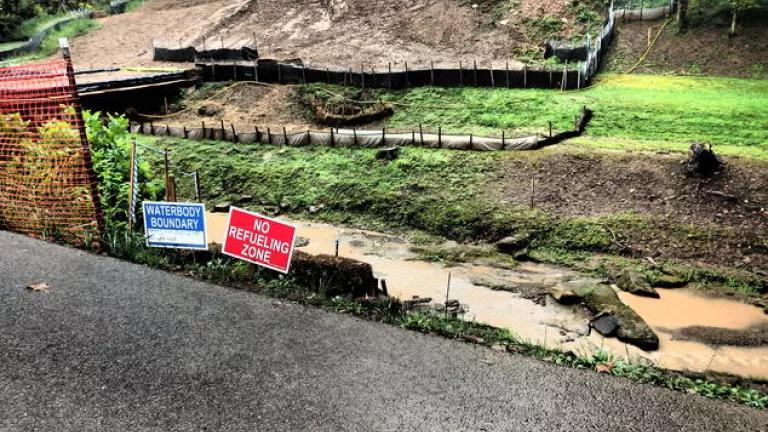Developers Abandon the Atlantic Coast Pipeline for Good
The decision is a landmark win for those who saw the polluting project as a threat to waterways, wildlife, the climate, and vulnerable communities.

Climate activists with Friends of the Earth participate in a demonstration against the Atlantic Coast Pipeline at the Supreme Court in Washington, D.C., February 24, 2020.
The decision is a landmark win for those who saw the polluting project as a threat to waterways, wildlife, the climate, and vulnerable communities.
The two energy companies behind the risky Atlantic Coast Pipeline announced plans to abandon the project amid rising costs, regulatory uncertainty, and revoked permits.
“This is tremendous news for West Virginians, Virginians, and North Carolinians, who deserve clean air, safe water, and protection from climate change,” says Gillian Giannetti, an NRDC attorney with the Sustainable FERC Project. “The costly and unneeded Atlantic Coast Pipeline would have threatened waterways and communities across its 600-mile path.”
In the nearly six years since the pipeline’s proposal, Dominion Energy and Duke Energy had sunk billions of dollars into the project but continued to face legal challenges and public pushback. Construction had been suspended since late 2018 due to the invalidating of numerous permits by the courts.
The pipeline would have cut through the Appalachian Trail, passed through steep, forested mountains—one of the most intact landscapes in the Southeast—and disrupted critical spawning and nursery habitat for endangered fish, such as the Atlantic and shortnose sturgeon.
It would also have threatened vulnerable communities of color along its route. In the historically Black town of Union Hill, residents had fought the proposal to build a polluting gas compressor station in their community that served as part of the Atlantic Coast Pipeline’s infrastructure. “Its cancellation marks a victory for Virginians in Union Hill whose concerns about a proposed gas compressor station were repeatedly ignored,” Giannetti says, “and for tribal communities in North Carolina who were similarly rebuffed by state and federal agencies.”
The news came just a day before a district court decision to shut down the Dakota Access Pipeline due to an insufficient environmental review. Together, the two wins are stunning rebukes of the Trump administration’s continued efforts to prop up pipeline proposals and weaken bedrock environmental laws, like the National Environmental Policy Act and the Endangered Species Act.
“As they abandon this dirty pipe dream,” Giannetti says, “Dominion and Duke should now pivot to investing more in energy efficiency, wind, and solar—that’s how to provide jobs and a better future for all.”



